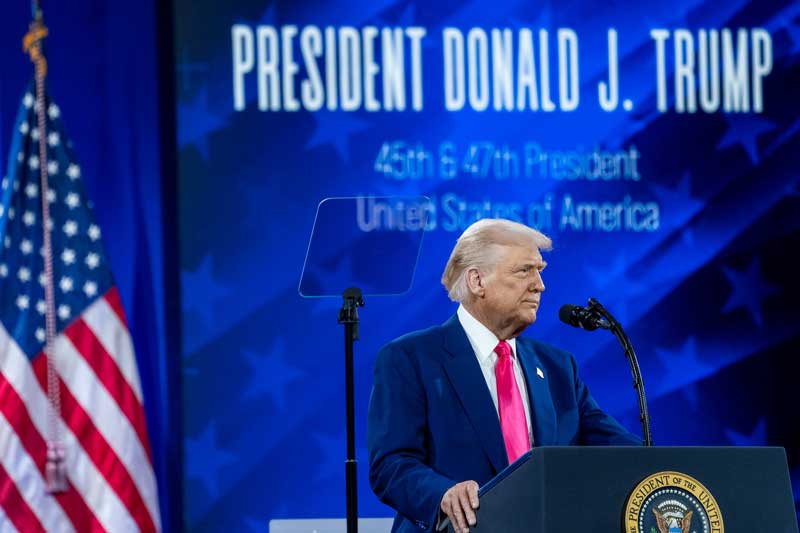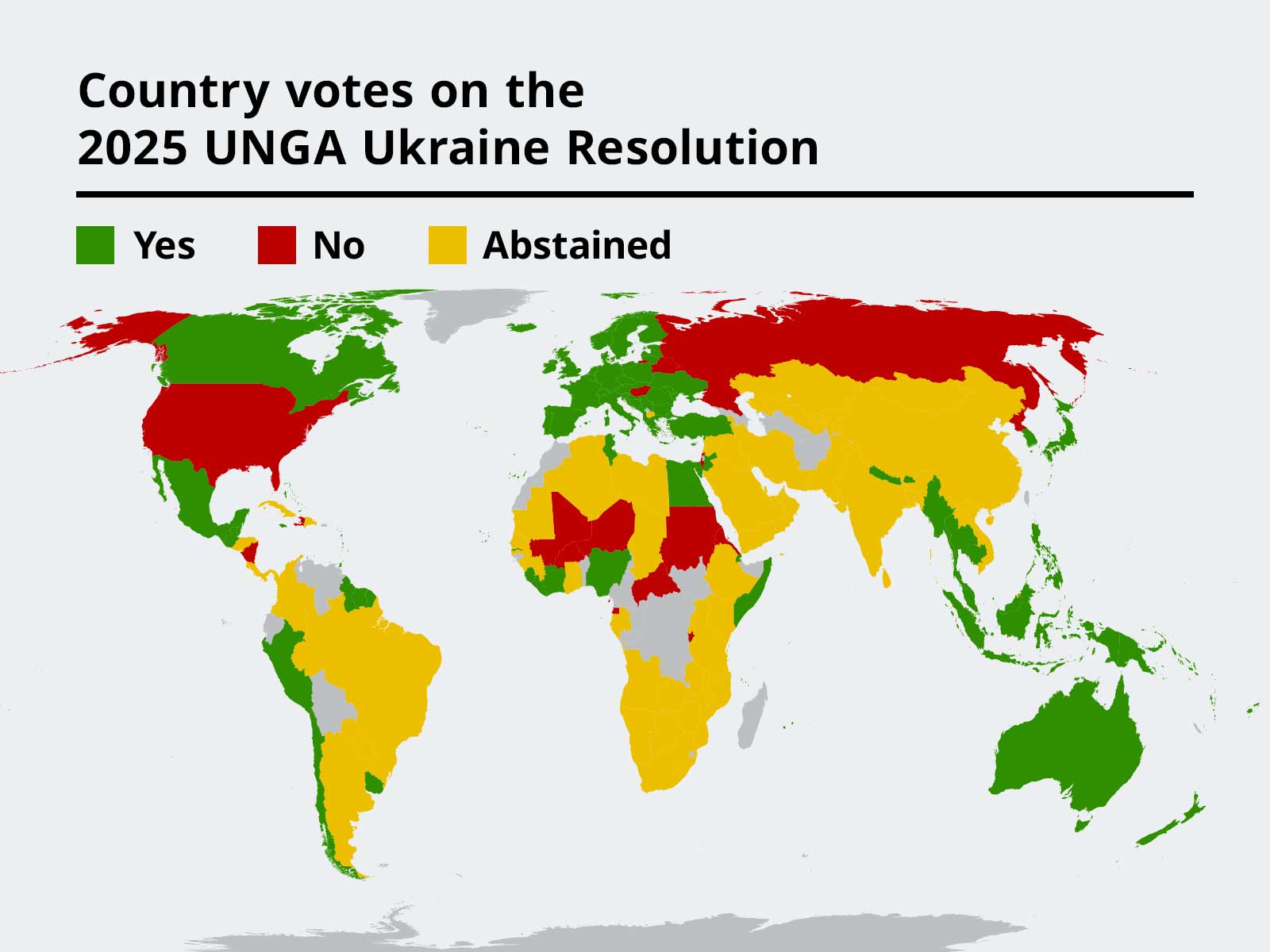| Welcome to the latest issue of Diplomat Brief. This week our top story examines the impact the Trump administration’s policies are having on the regional order in the Indo-Pacific. We also have an interview with Dr. Mahrang Baloch, leader of the Baloch Yakjehti Committee, about the Baloch rights movement and the response from the Pakistani state. |
| Story of the week |  | Diplomacy Trump’s Impact on Asia’s Contested OrderWhat Happened: Since U.S. President Donald Trump took office just over a month ago, he has moved rapidly to remake both the U.S. government and traditional pillars of U.S. foreign policy. These policies, whether intentionally or not, are sowing deep uncertainty regarding the future regional order in the Indo-Pacific – which was already the site of contestation and fraught interactions between major powers. “A thaw in Russia-U.S. relations, an anticipated China-U.S. summit, purported reductions in U.S. defense spending, announced and anticipated tariffs, and increased U.S. demands for greater burden sharing by allies and partners – what this all means for future U.S. relations with Indo-Pacific and the overall regional order is subject to wide-ranging speculation,” writes Robert Sutter for The Diplomat. Our Focus: Sutter sketches an overview of the rapid-fire changes underway, including reversals of U.S. policy constants dating back to the end of World War II. “The Trump administration’s actions worsen the challenge of determining clear policy options and strategies in an Indo-Pacific order already deeply in flux and subject to conflicting pressures with no clear path forward,” he notes. This uncertainty is the source of widespread concern among regional governments, who see the current order dissolving and no clear picture yet of what will come. In such a context, policymaking is difficult as governments seek to steer a course toward regional stability. What Comes Next: Ultimately, Sutter concludes, “the norms, standards, and frameworks that influence and determine the Asian order in the 21st century are in flux” – and he cautions against overconfidence in attempting to predict what will emerge from the chaos. U.S. policy is only one factor; the responses of China as well as other regional players like Japan and India will play an equal part in reshaping the Indo-Pacific. “Against this complicated background,” Sutter warns, “specialists and commentators assessing the impact of Trump 2.0 on regional dynamics would be wise to acknowledge the limits of such projections.” Read this story |
| Behind the News | INTERVIEW Mahrang BalochDr. Mahrang Baloch, leader of the Baloch Yakjehti Committee, on the rise of militancy in Balochistan: “The primary cause of insurgency and militancy in Balochistan is the state’s own policies. Its violent approach has pushed Baloch youth toward militant groups – something that the BYC has no role or involvement in.” Read the interview |
| This Week in Asia | Northeast Asia Constitutional Court Hears Final Arguments in Yoon Suk-yeol’s Impeachment TrialOn February 25, South Korea’s Constitutional Court heard closing arguments in the impeachment case against President Yoon Suk-yeol. Yoon, who is currently in prison facing insurrection charges in a separate criminal case, has used hearings at the Constitutional Court to defend his decision to declare martial law and deny accusations that he sought to arrest opposition figures. Throughout the process, Yoon has attempted to portray himself as a lone warrior defending South Korea’s democracy from “anti-state forces” – despite his role in undermining the country’s democracy. The court is expected to issue its final ruling in March; if Yoon’s impeachment is upheld, it will start a 60-day clock on holding new presidential elections. Find out more | South Asia Nepali Student Death in India Sparks Diplomatic TensionsA Nepali student at the Kalinga Institute of Industrial Technology (KIIT) in India’s eastern state of Odisha died by suicide last week – allegedly after her complaints about abuse and threats from a male student were ignored by school authorities. Her death sparked protests by Nepali students, and the tone-deaf response of KIIT administrators – who banned demonstrators from campus and made disparaging remarks about Nepal – only deepened the outrage. Government officials from both sides have since stepped in to mitigate the damage, but the incident once again underlined the potential for public anger to disrupt India-Nepal relations. Find out more | Southeast Asia Vietnam Approves New Rail Link With ChinaVietnam’s National Assembly this week approved the construction of a new $8.3 billion railway link connecting northern Vietnam with China. The 391-kilometer railway will run from the China-Vietnam border gate at Lao Cai-Hekou to the Vietnamese capital Hanoi, and then to Haiphong, which houses the largest seaport in northern Vietnam. The project, which comes not long after the National Assembly’s approval of a high-speed rail connecting Hanoi with the southern metropolis of Ho Chi Minh City, will reportedly be paid for in part with Chinese loans. The effect of the rail link, which will upgrade a colonial-era line completed in 1910, will be to deepen the integration between northern Vietnam, which is home to a booming manufacturing base as well as substantial deposits of rare earth metals, with southern China. Find out more | Central Asia Ukrainian Drones Hit Kazakhstan’s Main Oil Export PipelineLast week, Ukraine’s UAVs attacked the Kropotkinskaya pumping station in Russia. Kyiv said the strike was aimed at “strategic objects that support Russia’s armed aggression.” However, the pumping station is more importance to Kazakhstan – it serves as a crucial node in the Caspian Pipeline that carries around 80 percent of Kazakhstan’s oil for export abroad. Russia has indicated that Kazakhstan and the investing companies will need to take responsibility for repairing the damage. The attack once again demonstrated the perils of Kazakhstan’s heavy reliance on a pipeline transiting Russia, but alternatives have been difficult to come by. Find out more |
| Visualizing APAC |  | On February 24, the U.S. gave a shocking “no” vote to a U.N. resolution condemning Russia’s invasion of Ukraine. Most of the Asia-Pacific countries, however, kept to their usual voting patterns – with a few notable exceptions. See the full picture |
| Word of the Week | Society Tanish-bilishLiterally meaning “acquaintance-knowing” in Uzbek, the term refers to leveraging connections to receive favorable treatment. Find out more |
|  |


